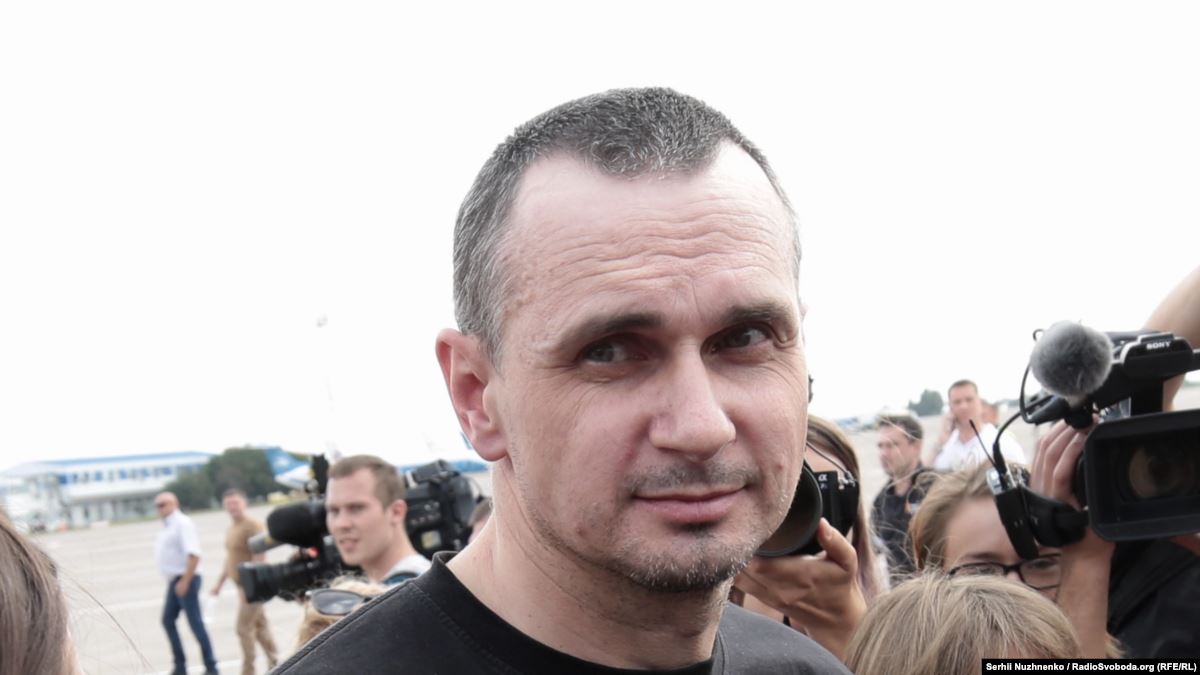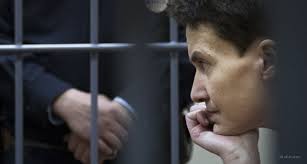While Pavlo now faces 5 to 10-year imprisonment, his life remains at risk as he has a disability related to the work of his blood circulatory system. After the intervention of the European Court of Human Rights, Russia reported that he is overall healthy, but Pavlo’s doctors said, speaking at a press conference, that his medical condition is "grave," as evidenced by the ulcers on his face, red eyes, and weakness which his lawyer reported after seeing the young man in prison. For two months, the prisoner is not allowed to take necessary medication, and Ukrainian physicians are denied access to him. In the Russian city of Krasnodar, where Pavlo is held, there are no local specialists who can save him in case of internal bleeding. This may happen anytime, Ukrainian doctors stress
.
Several other Ukrainian citizens imprisoned by the Kremlin regime on political grounds have been accused of plotting explosions, including the filmmaker Oleg Sentsov, anarchist Oleksandr Kolchenko, historian Oleksiy Chyrniy, and pensioner Oleksiy Syzonovych
. None of the “terrorist” charges against them seem plausible. In the case of Hryb, however, Russian investigators transcended themselves as Hryb was seized neither in the Russian Federation nor in occupied Crimea; moreover, he had never been to Russia until he was transported there by force.
Russian FSB have presented their version this week at the court hearing, which ended with the prolongation of Pavlo’s illegal arrest until 4 January 2018. As they state, last spring the FSB allegedly noticed a mention of “school blasting” in Pavlo’s Skype correspondence with his female friend, a final year school student from Russia’s Krasnodar Krai. In view of the investigator, this amounts to the involvement of another person in terrorist activities (Part One of Article 205.1 of the Russian Criminal Code), which is punished with 5 to 10 years in jail. It remains unclear whether such a facetious mention took place indeed or was completely concocted by the “law enforcers” as no records or transcripts of those conversations were presented.
According to the chronology drawn up by the prisoner’s father, in mid-summer 2017, after the girl successfully graduated from her school (while no blasting had happened), the regional FSB branch instituted a criminal case against her. The security officers searched her apartment and forced her into self-incrimination based on the misinterpreted words. Then they made her participate in a special transborder operation aimed at luring Hryb to Belarus at the end of August.
“The specter of a terrorist threat was liquidated just as successfully as it was created two months before,” sarcastically writes his father. “The FSB eat their bread not in vain.”
Read also:
- Russian FSB accuses Ukrainian teen it abducted of “terrorism”
- Russian FSB abducts Ukrainian teen who went to meet a girl in Belarus
- “Crimean saboteurs” – latest victims of Kremlin’s hostage strategy





